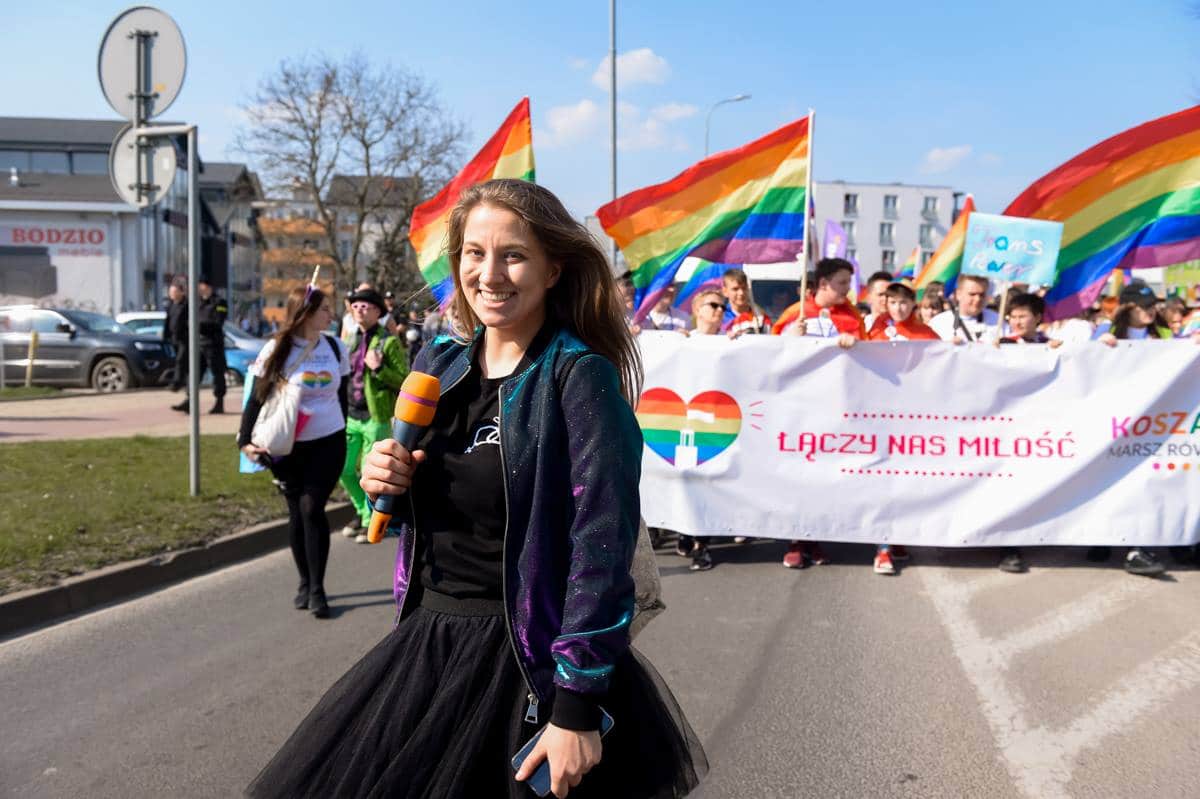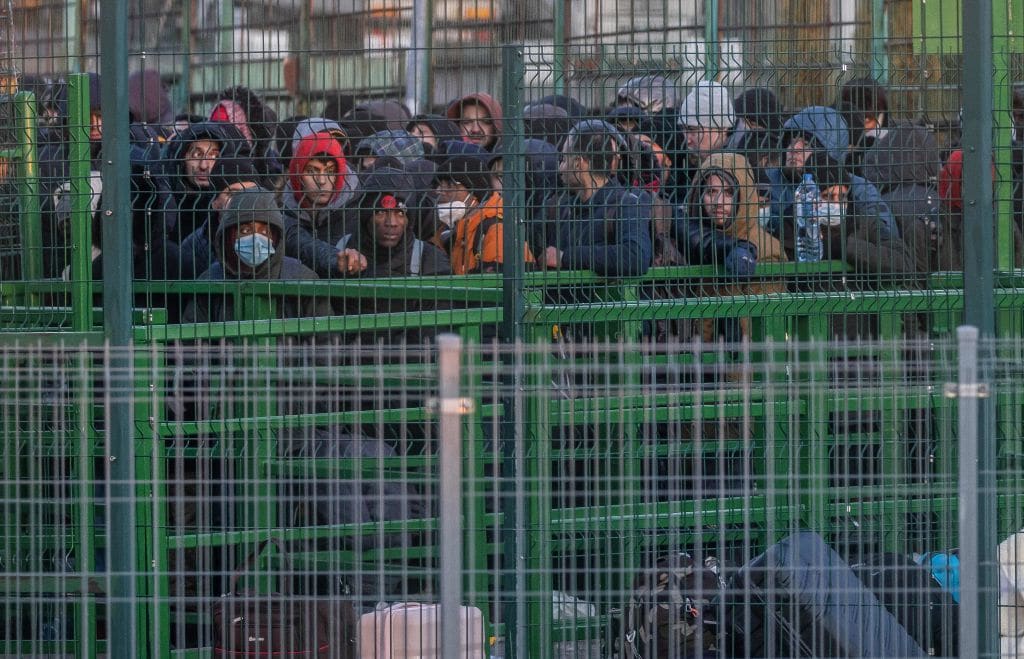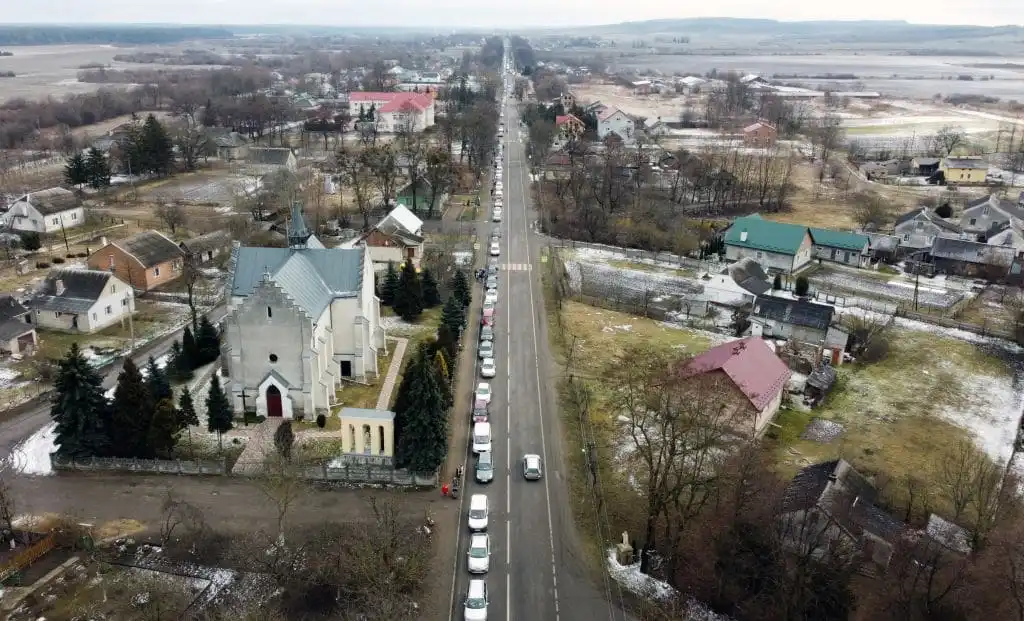Brave Polish activists helping LGBT+ Ukrainians flee Putin’s barbaric war
Julia Maciocha is exhausted – she’s been keeping busy making sure trans people in Ukraine can still access medication even as war breaks out across the country.
It’s an all-consuming job, but Julia – who serves as chairwoman of Warsaw Pride in Poland – didn’t have to think twice about doing it. Like many other LGBT+ people, she has watched in horror over the last couple of weeks as Russia invaded Ukraine, unleashing war and prompting a mass exodus in the process. So far, two million people have fled Ukraine, with half of those crossing the border into Poland.
Julia and the Polish LGBT+ activists she works with at Warsaw Pride quickly leapt into action. They knew there was a great deal of work to be done, from arranging suitable, safe housing for queer people crossing the border to organising much-needed medication for those who remain in Ukraine.
These are the everyday realities of war that most people don’t think about. At the end of the day, trans people will still need hormones and those with HIV will still need access to antiretroviral drugs. Air strikes and curfews have made those things most of us take for granted an impossibility for queer Ukrainians.
LGBT+ people who remain in Ukraine still need access to medical supplies
“I look like s**t,” a tired-looking Julia jokes when we speak over Zoom. She and other activists involved with Warsaw Pride learned over the weekend that they could transport vital medical supplies to LGBT+ people in Ukraine. They worked tirelessly through the weekend to get supplies together, which they did with some help from Fundacja Interakcja, a Polish foundation that helps intersex people.
Finally, on Monday night (7 March), they sent the medical supplies to Ukraine. Dedicating themselves to the task has helped Julia and other Polish activists feel useful in a difficult, turbulent time.

“This is something that I feel is helpful to get through – we have a task, we are doing it, we are not thinking too much about it,” Julia says.
“If somebody is crossing the border and is already in Poland then we can do everything, but we still have people in Ukraine who don’t want to leave or who can’t leave. They need food, they need medical supplies, they need their basic needs to be met.”
It just hurts to know that they could be hurt at any time.
For Julia, their efforts to help out Ukraine’s LGBT+ community is at the very core of what the Pride movement means. The activists involved with Warsaw Pride have worked closely with Kyiv Pride for some time, and Julia considers them friends. She becomes emotional when asked what it felt like to wake up on 24 February to the news that Russia had invaded Ukraine.
“I’m always crying when I think about it,” she says. “I still have friends there. I have friends who have decided to stay – I understand their decision, they’re doing amazing work, but it just hurts to know that they could be hurt at any time. They are struggling so much.”
Many queer Ukrainians won’t want to stay in Poland because of the country’s homophobia
While some queer Ukrainians have decided to stay, others have made the difficult journey to safety in Poland. The country has won praise from governments across the world for its open-armed approach to Ukrainian refugees, but Julia points out that the country is also one of the most homophobic places in Europe. That presents challenges when finding safe accommodation for LGBT+ refugees.
“I know that right now, any Polish person is opening their hearts to anyone, but it’s still not an ideal position for LGBTQ people to feel safe,” Julia explains. “We want to house them with people that understand their needs and their struggles. We want to focus on help that is sensitive to the needs of LGBTQ people. Right now, people are in huge trauma, they don’t know what to do, they’re in shock.”
Because of the trauma they’ve been through, many of those crossing the border are struggling to adjust, Julia says.

“They still can’t believe that everything here is given to them for free,” she says. “They can’t believe that they can get housing for free, food, clothes, everything. I’m also surprised that my society, my community in Poland, has decided to help them so much.”
Most refugees are just trying to hold it all together, Julia says – but that’s not easy when you find yourself plunged into uncertainty in a new country, away from family and friends.
I don’t think [Poland] is a great place to stay and to start a new life or to continue living
“I would say that most of these people are just trying to survive the day. Most of them are sleeping for at least two days after staying at the border. It’s very cold – at the beginning there was no humanitarian aid on the side of Ukraine so many people had to stand there for two days without food, without water. Right now we are focusing on giving them time to rest and then we will figure things out.”
The long term outlook is uncertain. Julia anticipates that many of the LGBT+ Ukrainians crossing the border won’t want to stay in Poland long term because of the country’s troubling lurch into homophobia and transphobia in recent years.
“We are in contact with other neighbouring countries to provide them with support after they leave our country. It’s wonderful what Poland is doing now for people, but we still have to remember that we are the most homophobic country on the ILGA ranking, so I don’t think it’s a great place to stay and to start a new life or to continue living.”
Long term solutions are needed if Ukrainian refugees are to be adequately cared for
Poland has won praise from the likes of the United Nations and from Pope Francis over the last couple of weeks for welcoming Ukrainians who are fleeing war with open arms. Julia isn’t “proud” of her country – she doesn’t believe in “countryism”, but she says she is proud of Polish society for responding in the way it has.
“To see ordinary people spending their weekends driving people from the border or spending their evenings making sandwiches for people coming to our cities is beautiful, but we have to remember that it isn’t going to be enough.”

Julia says the Polish government needs to “step up” and put in place systems to cater correctly for Ukrainian refugees.
“This is not something society can do. We need our government to step up, and right now our government is just taking praise from the leaders of other countries.
“I’m really proud of Poles, I’m proud of all my friends that are hosting people, that are spending their time volunteering, but I wouldn’t say I’m proud of the country.”